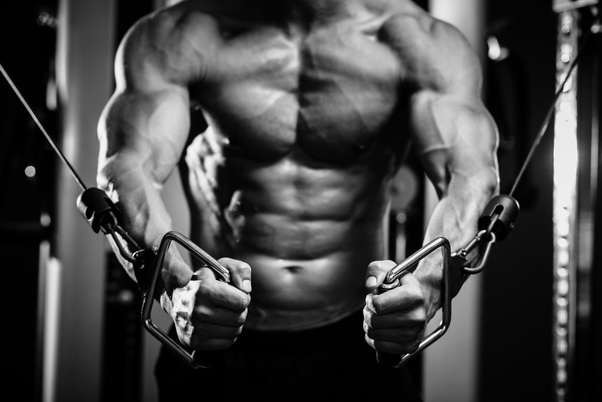In recent years, bodybuilding has surged in popularity, transcending its niche origins to become a mainstream fitness pursuit. With the proliferation of gyms, online resources, and social media influencers, the allure of sculpting a muscular physique has captivated individuals of all ages and backgrounds. However, amidst the sea of conflicting advice and fad workouts, the fundamentals of effective bodybuilding often get lost. In this comprehensive guide, we delve into the art and science of bodybuilding, providing actionable insights and strategies for achieving optimal results.
Understanding the Basics:
Before embarking on any bodybuilding journey, it's crucial to grasp the fundamental principles that underpin this discipline. At its core, bodybuilding revolves around two key components: resistance training and nutrition. Resistance training involves lifting weights to stimulate muscle growth, while nutrition provides the building blocks necessary for muscle repair and growth.Setting Clear Goals:
The first step in any successful bodybuilding endeavor is defining clear and achievable goals. Whether your aim is to increase muscle mass, improve strength, or enhance overall physique, establishing specific, measurable, and realistic objectives will serve as a roadmap for your journey. Additionally, consider factors such as timeframe, body composition, and performance benchmarks when setting goals.Designing an Effective Training Program:
A well-structured training program forms the cornerstone of any bodybuilding regimen. When designing your program, focus on incorporating compound exercises that target multiple muscle groups simultaneously, such as squats, deadlifts, bench presses, and rows. Aim to train each muscle group at least twice per week, allowing for adequate rest and recovery between sessions.Progressive Overload:
Central to muscle growth is the principle of progressive overload, which involves gradually increasing the intensity, volume, or resistance of your workouts over time. By consistently challenging your muscles with heavier weights or higher reps, you stimulate continuous growth and adaptation. However, it's essential to strike a balance between pushing your limits and avoiding overtraining, as excessive strain can lead to injury and setbacks.Prioritizing Compound Movements:
While isolation exercises have their place in bodybuilding, compound movements should take precedence in your training routine. Compound exercises not only recruit a greater number of muscle fibers but also elicit a systemic hormonal response, promoting overall muscle growth and strength development. Additionally, compound movements mimic real-world functional patterns, enhancing athleticism and performance.Paying Attention to Form and Technique:
Proper form and technique are paramount in bodybuilding, not only for maximizing muscle engagement but also for minimizing the risk of injury. Prioritize quality over quantity, focusing on executing each exercise with strict form and controlled tempo. Consider seeking guidance from a qualified fitness coach or trainer to ensure proper technique and form.Incorporating Variation and Periodization:
To prevent plateaus and stimulate continuous progress, incorporate variation and periodization into your training program. Periodization involves systematically manipulating training variables such as volume, intensity, and frequency over distinct phases or cycles. By cycling between phases of high volume, moderate intensity, and low volume, high intensity, you optimize muscle adaptation and recovery while avoiding stagnation.Emphasizing Recovery and Rest:
In the pursuit of muscle growth, recovery is often overlooked but is equally vital as training itself. Adequate rest, sleep, and nutrition are essential for facilitating muscle repair, replenishing energy stores, and optimizing hormonal balance. Ensure you prioritize sleep hygiene, consume nutrient-dense foods, and incorporate rest days into your training schedule to promote overall well-being and performance.
Nutrition Strategies for Bodybuilding Success:
In addition to training, nutrition plays a pivotal role in supporting muscle growth, recovery, and overall performance. Adopting a balanced and nutrient-rich diet tailored to your specific goals and needs is essential for maximizing your bodybuilding efforts.Meeting Protein Requirements:
Protein serves as the cornerstone of muscle repair and growth, making adequate intake crucial for bodybuilders. Aim to consume high-quality protein sources such as lean meats, poultry, fish, eggs, dairy, legumes, and tofu with each meal to meet your daily requirements. Depending on your goals and activity level, aim for a protein intake of 1.6 to 2.2 grams per kilogram of body weight per day.Fueling Workouts with Carbohydrates:
Carbohydrates serve as the primary fuel source for high-intensity workouts, making them essential for sustained energy and performance. Prioritize complex carbohydrates such as whole grains, fruits, vegetables, and legumes, which provide a steady release of energy and support glycogen replenishment. Timing carbohydrate intake around your workouts can optimize performance and recovery.Incorporating Healthy Fats:
While often overshadowed by protein and carbohydrates, dietary fats play a crucial role in hormone production, joint health, and overall well-being. Include sources of healthy fats such as avocados, nuts, seeds, olive oil, and fatty fish in your diet to support muscle growth and optimize hormonal balance.Prioritizing Nutrient Timing and Meal Frequency:
Strategic nutrient timing and meal frequency can influence muscle protein synthesis, glycogen replenishment, and overall recovery. Aim to consume a balance of protein and carbohydrates within the post-workout window to promote muscle repair and glycogen resynthesis. Additionally, spreading your protein intake evenly throughout the day and incorporating regular meals and snacks can optimize muscle protein synthesis and support energy levels.Staying Hydrated:
Proper hydration is often overlooked but is critical for optimal performance and recovery. Aim to drink an adequate amount of water throughout the day, especially before, during, and after workouts, to maintain hydration status and support nutrient transport and waste removal.







0 Comments